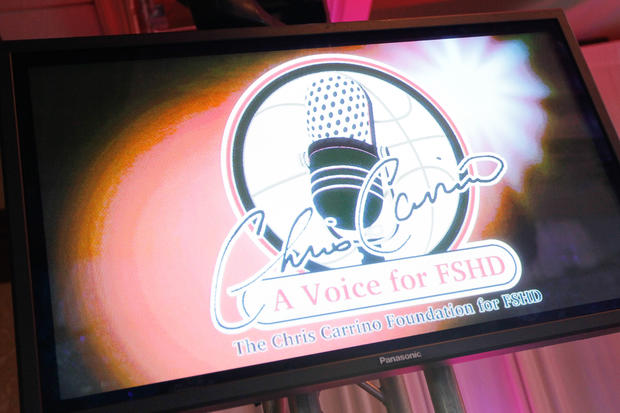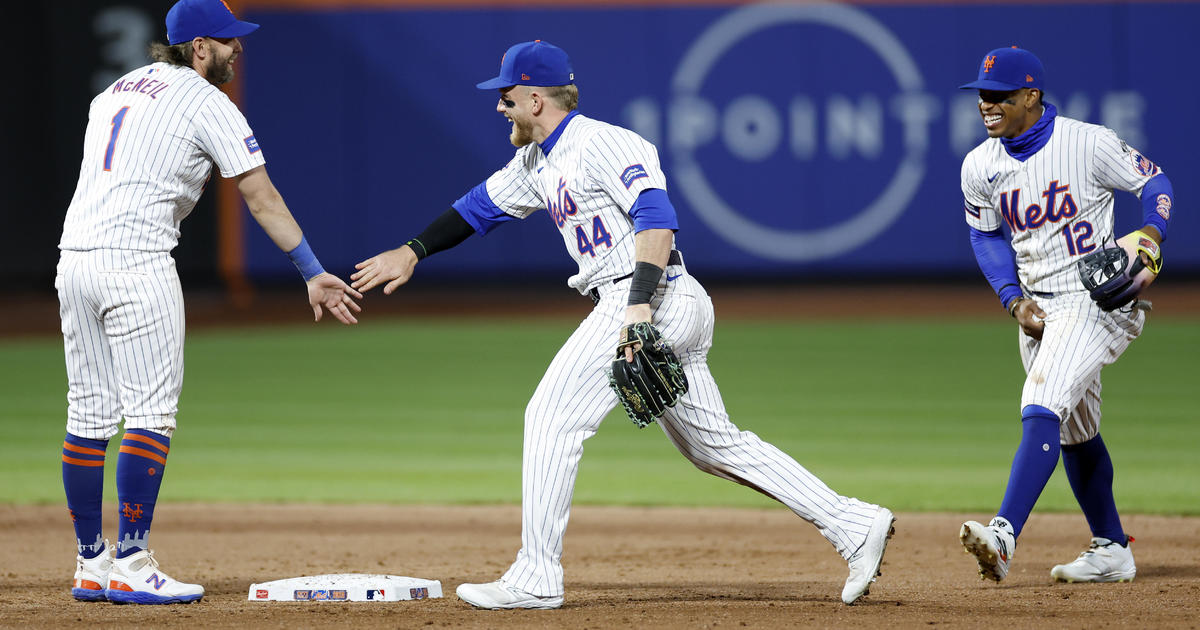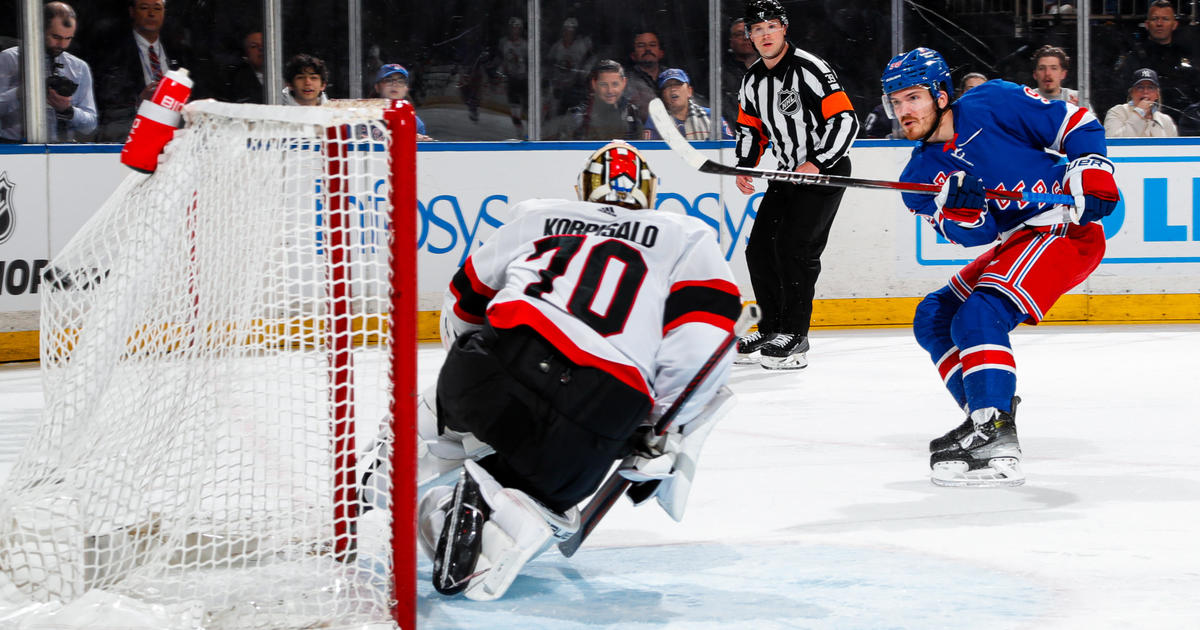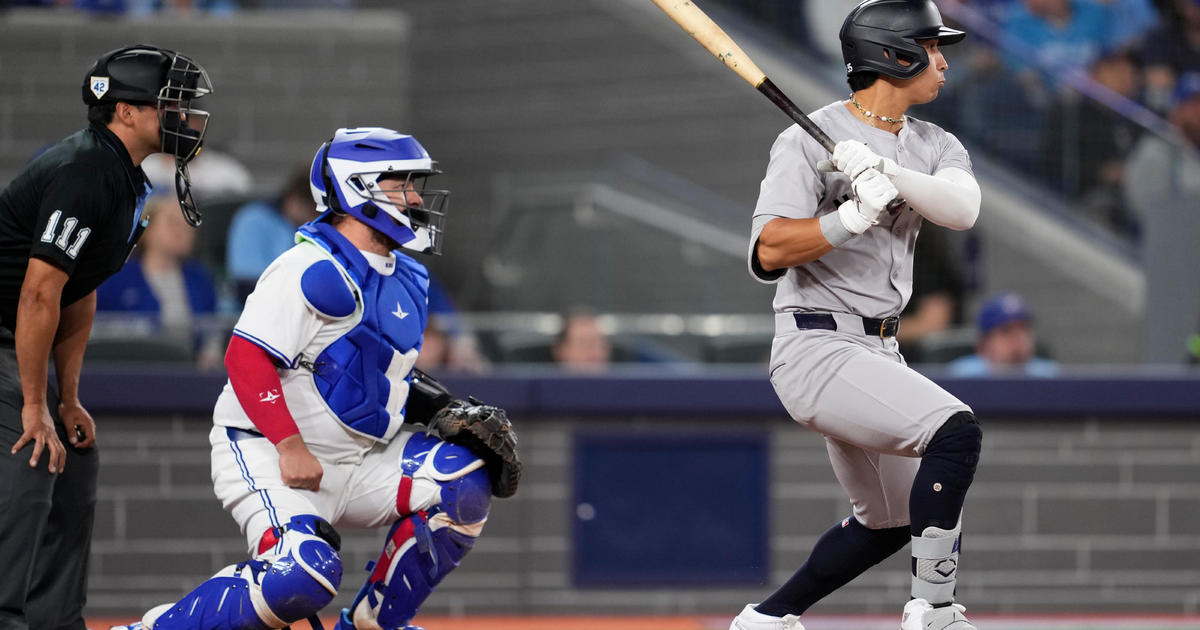Schwartz: A Net Gain For A Tremendous Cause
By Peter Schwartz
» More Columns
There was a time when Chris Carrino was an avid sportsman. But during his college years at Fordham, his ability to compete athletically suffered a drop off as he began to feel the effects of weakening muscles, mostly in his shoulders and upper limbs.
Then, in his early 20s, Carrino was diagnosed with facioscapulohumeral Muscular Dystrophy, a form of muscular dystrophy that affects thousands of adults and children throughout the world. It's a progressive disease for which there is no cure or treatment, but the radio voice of the Brooklyn Nets is dealing with it.
"I actually have been feeling pretty good," said Carrino. "I try to live in the moment with it, but knowing that down the road it's definitely a progressive thing that you have to deal with. You have to deal with the emotional effects of it and you have to deal with the physical effects of it."
On July 17, Carrino's foundation for FSHD will hold its fourth annual dinner/dance at Russo's on the Bay in Howard Beach. The foundation is a non-profit 501(c) 3 charitable organization that funds specifically-focused scientific research.
After he was initially diagnosed with FSHD, not many people knew what Chris was going through. Instead of telling everyone about his disease, Carrino chose to keep it a secret.
"I never wanted people to view me any differently," said Carrino, who just completed his 13th season as the radio voice of the Nets. "I didn't want people to get the idea that I couldn't do the job. People that were really close to me knew because there were limitations that I would have."
Since Carrino was working for and travelling with the Nets, the organization knew what was going on. They did everything to make life easier for him, from broadcast partner Tim Capstraw carrying his bags to giving Carrino the front seat on the team bus. The organization made sure that he had a parking spot and a comfortable place to call a game at home games.
The Nets took care of their radio voice.
"I can't say enough (about) the support that I get from the team," said Carrino. "It can be a bit demanding physically traveling around the country and getting on and off planes and buses. People around the team are always on the lookout -- whether it's our trainers or the equipment people who will look out for my stuff -- and make sure that if I'm ever in a situation where I need some help they're always there to help."
As Carrino continued to feel the effects of FSHD, he continued to keep it under wraps from the public. That is until one day around 2010, when he decided to come clean. Carrino was having a bad day, and his wife, Laura, became angry with him for being in denial.
She finally convinced him that it was time to do something.
"No one saw more (of) what I went through than Laura," said Carrino. "She said there has to be something you can do to help yourself. I broke down and said this bothers me more than I ever let on. It's frustrating and it's frightening. At that point we just said I can't bury my head in the sand any longer, and I have to go out and do something about this."
What he did was start the Chris Carrino Foundation for FSHD in 2011.
But Carrino didn't do it all by himself. He met a woman from Long Island named Jennifer Burgess who, along with her son, suffered from FSHD and started a small foundation that had funded the first FSHD-genetic study in the New York metropolitan area.
"She was willing to help me get started with my foundation," said Carrino. "She actually just changed the name of her foundation and we sort of merged, and we formed what is now the Chris Carrino Foundation."
About three months later, Carrino was talking to his brother-in-law, whose brother-in-law is the house DJ at Russo's. It was his suggestion to hold a fundraiser there, and the event was thrown together in three months.
The first dinner/dance drew 280 people, prompting the maître d' to tell Carrino to expect more the following year.
"She said, 'Well you could just feel the love in the room,'" recalled Carrino. "Everybody had just a great time."
As it turns out, 420 people came the following year, and that number ballooned to about 450 last year.
"It's just become this event that every summer people look forward to," said Carrino. "We've had great support. It's been very successful and we've raised a lot of money, and we're looking forward to having another great event this year."
The Nets have been very supportive of Carrino and his foundation. They have been a platinum sponsor of the dinner/dance and always donate a lot of items to be auctioned and raffled off.
"It's nice to know that people that you work with care about you and they've been very supportive," said Carrino, who has a reason to be optimistic these days.
There have been a number of breakthroughs in FSHD research over the last decade. Carrino's foundation is part of a group called FSHD Champions, a consortium of all the FSHD-specific groups from around the world. What they do is come together and share their research notes.
The big breakthrough came 10 years ago. For 100 years, doctors didn't know what caused FSHD, but they were finally able to figure out that the disease is caused by the deletion of a gene called DUX4. This gene is dormant in people who do not suffer from the disease, but in FSHD patients it's overexpressed and creates a protein that attacks the muscle.
"For years (the doctors) were basically shooting arrows in the air," saidCarrino. "About 10 years ago, they figured out that there was this side of the barn that they could shoot at. Now, we've painted the bull's-eye on the barn that we can shoot at."
Carrino's foundation funds a variety of projects, including one by Dr. Peter Jones and his wife from the University of Massachusetts. What they've been able to do is breed a mouse with the overexpression of DUX4 that has been able to survive.
"That's a huge step in getting pharmaceutical companies involved that will then do trials to try and see what kind of drugs can work," said Carrino. "I think generations down the road here will have the benefits of a treatment or a cure."
As Carrino continues to broadcast Nets games -- while also doing play-by-play of NFL and MLB contests for Compass Media Networks -- there is hope that one day there will be a cure and treatment for FSHD.
That would be a slam dunk, touchdown and homer all wrapped up in one.
For more information on the foundation and the July 17th dinner/dance at Russo's, please visit www.chriscarrinofoundation.org or e-mail the foundation at info@chriscarrinofoundation.org.
Don't forget to follow me on Twitter @pschwartzcbsfan and Chris Carrino @ChrisCarrino.
You May Also Be Interested In These Stories





